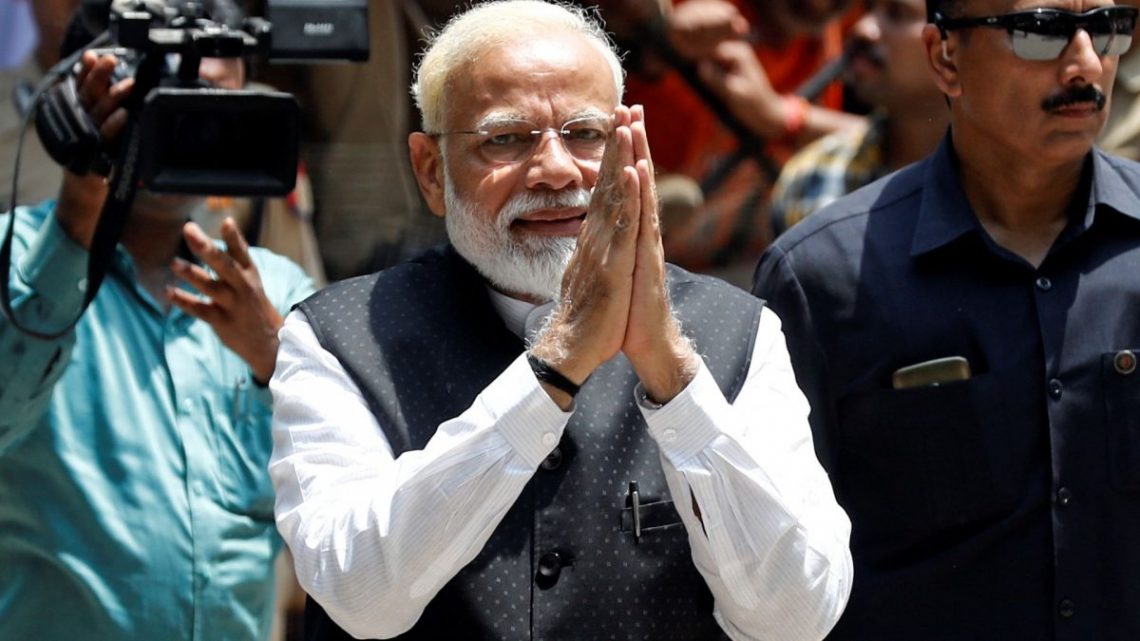Every year December 25 is observed as ‘Good Governance Day’ or Sushasan Divas. Designated by Prime Minister Narendra Modi in 2014, the day has become an occasion to pay tribute to former PM Atal Bihari Vajpayee and also appreciate the measures the country has been adopting towards ensuring good governance.
Good Governance Day is celebrated on the birth anniversary of Vajpayee who was born on December 25, 1924 in Madhya Pradesh’s Gwalior.
He was the first leader of the BJP to have served as India’s Prime Minister for three times – briefly in 1996, for 13 months in 1998 and 1999, and full five-year term from 1999 to 2004.
His tenure saw transformational initiatives including the Kisan Credit Card, Pradhan Mantri Gram Sadak Yojana, Sarva Shiksha Abhiyan, and the National Rural Health Program.
Good Governance Day aims to promote awareness and educate citizens of the country about government duties as well as activities. It also instills “good governance” as a practice for Indian civil servants.
The goal to observe this day is to bridge the gap between the public and the government by promoting active participation from both.
The day is also commemorated to guarantee that the citizens of the country are treated equitably by the government and that they get utmost opportunity to avail the benefits of a host of government services.
Since coming to power in 2014, one of the biggest achievements of the Modi-led government at the Centre is its ability to deliver good governance to the people of the country in the remotest and most backward of regions and ensuring last mile delivery of schemes despite challenges.
It has been a decade since Good Governance Day is being observed and during this time, the government’s commitment to transparency, innovation, and people-centric policies have redefined governance in India.
On the eve of the Good Governance Day, Union Minister Dr Jitendra Singh outlined transformative governance reforms implemented under PM Modi’s leadership.
Dr Singh said nearly 2,000 obsolete rules which had lost relevance with the passage of time and which were “proving detrimental to ease of working and timely disposals” were scrapped to simplify governance.
“Nearly 2000 outdated rules and regulations have been scrapped to simplify governance and make it more citizen-friendly,” the Union Minister said.
“These outdated rules were proving detrimental to the ease of working and timely decision-making. Their removal is a major step toward creating a more citizen-friendly administrative framework,” the minister further said.
Dr Singh further said that within a few months after assuming the prime ministerial post in May 2014, the DoPT (Department of Personnel & Training) scrapped the feudalistic rule “which was a rather dubious legacy of the British empire and allowed the youth the freedom of self-attestation instead of requiring a gazetted officer to attest the documents.”
“This sent out a message across the country that now there was a government in place which had the capacity to trust the youth of the country,” he said.
Dr Singh further highlighted another significant reform of the Modi-government and said the PM in his Independence Day address gave a call for abolishing interviews in recruitment to lower-level posts in order to ensure transparency and this was implemented in 2016.
This step was aimed at eliminating subjectivity and favouritism in the hiring process, ensuring greater transparency and fairness.
The minister further pointed out that a number of reforms have been introduced under PM Modi’s regime to simplify the Pension Rules, especially those pertaining to senior citizens and family rules for divorced daughters.
These reforms highlight the government’s commitment to providing dignity and ease of access for the elderly and vulnerable groups.
Among the most visible transformations has been the integration of cleanliness into governance, turning what might have been dismissed as an administrative detail into a national movement.
“Cleanliness is now a hallmark of governance practices”, Dr Singh said, as he recalled how the cleanliness drive began with building toilets and evolved into cleaning up government spaces and work places.
He went on to reveal that that through efficient management of scrap material and obsolete equipment, the government had reclaimed over 643 lakh square feet of office space and earned Rs 2,364 crore for the national exchequer.
“The transformation is visible in government offices that were once cluttered and now serve as models of cleanliness and efficiency,” he said.
The minister also commended the significant strides made in the North East region of India under the leadership of PM Modi.
“Under PM Modi’s leadership, his frequent visits, infrastructure development, and socio-economic programs transformed the north east region into ‘a model of development’,” Dr Singh said.
“From bridges and highways to digital connectivity, the North East has seen transformative progress. This reflects PM Modi’s vision of equitable development,” he further said.
The Union Minister also highlighted significant developments in connectivity and said, “Under Modi ji’s leadership, the North East now enjoys unparalleled connectivity.”
Dr Singh attributed the success of these initiatives to the leadership of PM Modi, who he described as a “visionary unifier.”
“Under his guidance, we have seen the convergence of cleanliness, transparency, and efficiency in governance. These reforms are not just about better systems but also about building trust and creating a government that works for its people,” Dr Singh said.
Link to article –
Good Governance Day: From scrapping obsolete laws to digital reforms, how India changed in 10 years



